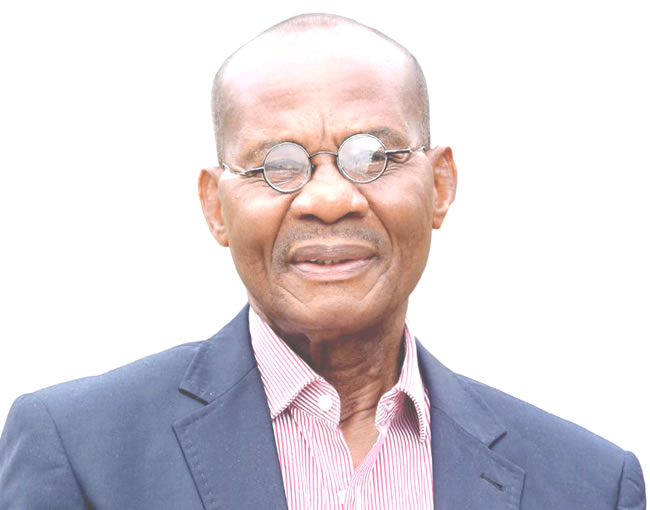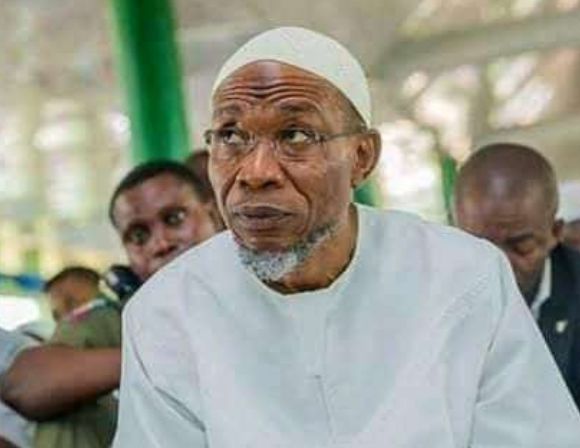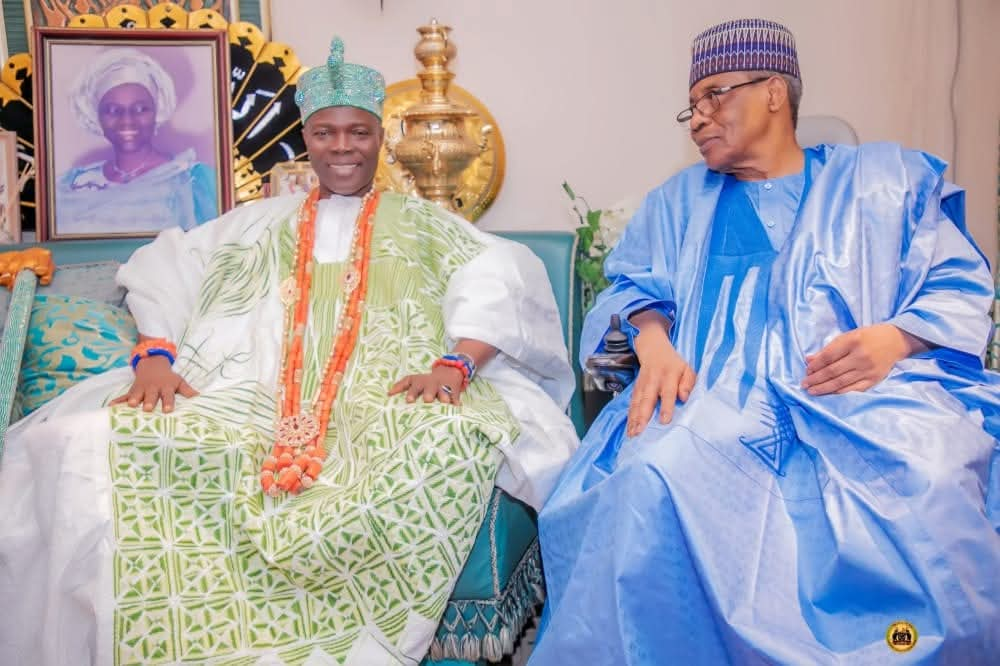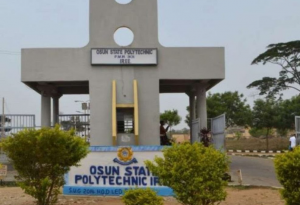Why first generation varsities in Nigeria may crumble —Dominican VC
[ad_1]
Professor Hyginus Ekwuazi, Vice Chancellor, Dominican University, located in Ibadan, speaks with IMOLEAYO OYEDEYI on the retrogressive state of education in Nigeria, explaining the factors that may soon send many first generation universities in the country into extinction if not adequately addressed.
How will you describe the current standard of education in Nigeria?
I know every parent, lecturer, teacher and stakeholder in the education sector may want to say otherwise considering their individual experiences. But for me, I will say the standard of education in Nigeria has not fallen. It has only shifted. I say this, because I know the kind of things I got in school and I also know what my children are getting now. Having observed the two, I have discovered that there is a big difference in the sense that their own education is somehow unitarian and centred towards personal interest. Take for example, there was a time a friend of mine came to see me and we were talking about shares and some of the factors that determine their behaviour these days. I made a comment, but my son said, no, it is not like that, dad. And then, I asked him how, he then went into his room and brought out newspaper cuttings and showed me a page on an edition of The Guardian. And then, I kept quiet. I noticed he has been following the publications over time. And that’s why I said their own education is tailored towards personal interest. That is why a child these days can study Biology. But tomorrow, you see him being an IT expert. So there is a way the education has shifted these days, in terms of where the children’s interest is essentially placed. That’s one aspect.
Secondly, in today’s education, what a person studied doesn’t matter, because you can always acquire other diverse knowledge on it, yet the initial knowledge you have will still be there with you. For instance, someone will read Islamic Studies and yet after some time, you will see him going for ICAN. And at the end of the day, he will become a good accountant. So, that’s why I say the standard of education has not fallen in the country, but has only shifted. I believe it is going in a certain direction, somehow different from what used to be in the past. Education,nowadays, has embraced science and individualism of the age, such that if someone should say, this is what I want, education will definitely provide it.
But some schools of thought have argued that, over the years, the quality of graduates being churned out by Nigerian universities has kept on reducing in terms of their ability to provide solutions to basic problems of the society through the knowledge they have gathered at the varsities. How true can this be?
Well, you will agree with me that Nigerian graduates often go outside the country and excel. So, I will say it is more about the Nigerian environment. For instance, an average Nigerian student or graduate will spend almost 18 hours out of the 24hours of a day hustling and striving hard for food, water, transport fares and several others. So, because these primary needs are not being met, they have to spend most of their time getting them, which then means that they have just a little time for other things like reading. So, I will say that the unfavourable studying environment is actually affecting the performance level of the Nigerian students. It is always different when you take that same Nigerian student outside the country, where all the basic primary needs are in place. You see him or her flying high, because in these advanced countries, provision of water, electricity, shelter and all are guaranteed.
Meanwhile, I will say it is not only the Nigerian students and graduates that are being negatively impacted by the demoralizing environment. Even the Nigerian workers too are not left out, because we are all trying to survive. So the pursuit of the basic primary needs has given us all little time to pursue excellence.
So, you are saying that the Nigerian environment is limiting the graduates and workers from being globally competitive?
Exactly. That is the fact. For instance, you need light to study adequately, but there is no constant light. Again, you need to transport yourself from one point to another, but that will take hours. Along the line, you will also need to surf the internet, but the money isn’t there. And even when you do have the money to get your data and purchase them, you will be confronted with bad networks. So there are many factors militating against us being at our optimal best. But immediately any of us find a way out of the country into any of the climes where the basic needs are guaranteed, it becomes easy to get results and fly high as we ought to.
Meanwhile, everything does not rise and fall on the lack of wherewithal. It also has to do with the kind of teachings we are exposed to. Take for instance, when I travelled to the United States, I experienced something totally different, because one lecture I had there taught me more about symbolism than all the lectures I had got at the University of Ibadan on the same symbolism. In fact, I sat in the US class for probably an hour at most, but within that 60 minutes, I saw symbolism as an aspect of life; I saw it in films, theatre and even in everyday life. I only did very little reading, but they showed me everything. So that one-hour lecture exposed me to more aspects of symbolism than all the lectures I had taken at UI on symbolism before going abroad. And this just explains partly why our students do perform better when they travel overseas.
But over time, the government has been accused of not properly investing in education in the country…
Yes, that is true, because we fall below the UNESCO minimum level for education investment. The truth is we have other distractions and diversions, but the government has greatly underfunded education in Nigeria. To buttress this point, I read in one of the newspapers today where one of the presidential candidates was lamenting the low investment the government has put into education and why the returns have been what we are experiencing. Take a look at the kind of huge trillions that is being invested in security, yet the result has been disastrous. Every year, we put tons of billions in security votes, but pay only lip service to education. And that is why we are in the current situation. Our investment in education is low when compared to comparable countries. In six years, our total investment in education by the federal government is about N3.6trillion. This is not up to that of South-African, which is the second biggest economy in about the same year. In 2020, their budget for education is R380billion. If you convert this, you will see the difference. This is just to further tell you that the Nigerian government hasn’t been duly committed to adequate funding of education in the country. It was a lot different in those old days when voluntary agencies such as churches built schools and the government paid them adequately. The regional government then saw the agencies and churches as viable builders of human capital, so they invested in them. But such is not happening now, because the government is no longer in any private institution. The government can barely pay the staff of its own universities. So, there is really a big problem.
So what do you think is the implication of this low investment in education?
That is what we are saying. You see, the low or complete lack of investment cuts across everything. It touches on manpower and also affects the society itself. It means there will be hunger and anger as people are not being adequately paid and funded to work and train students, who will in turn be leaders of the society tomorrow. Mind you, when we talk of underfunding, it cuts across all stages and levels of education in the country, starting from primary education. The consequences are really serious and we see them every day of our lives. Look at the Almajiri children, for instance, and how easy it is in the North for someone to mobilise them to destroy and disrupt anything. And it is just because the government hasn’t adequately invested in their education, maybe because they are people that it can use to weaponise anything. So, the effects are all over the place.
Over the last nine months, there has been continued dispute between the government and university lecturers. After they were legally forced to go back to class, the lecturers’ unions are now saying that the government has failed to fulfill the promise it made with them before they called off their industrial action. What is the solution to the lingering dispute?
I know you have heard people say in recent times that the Academic Staff Union of Universities (ASUU) has been confrontational and believe strike is the only way out. But personally, I don’t believe any of these, because the lecturers’ union has been far from that. In fact, the union did create many avenues for dialogue. So, I believe it has really tried. And for those saying ASUU should come up with another solution in place of strike, I want to ask: what solution again? This is because industrial action is the ultimate.
It is to be taken when you have explored all avenues and ways to reach an agreement and solution to a problem. I could remember that there was a time in UI that things went so bad that there was no chalk.
ALSO READ FROM NIGERIAN TRIBUNE
Then, all the ASUU members went for a meeting. I was at the meeting too. We were deliberating on what to do. And then Professor NiyiOsundare said maybe we should be a little bit more patient and then find a way to teach without chalk. And everybody said, okay. We then went back to class. But what later happened was that as any one of us entered a class to teach, the student would just throw a chalk at the person to teach. It was a desperate fun then. But the point I am trying to bring out is to tell you how far ASUU has gone to manage the system. The truth is that the Nigerian universities have actually been destroyed as the infrastructure is gone. Worst still, the political will to effect the change is no longer there. And that is why ASUU could go on strike and the thing will drag on for months and the government will do nothing. If you will remember, the federal government had to take the matter to court, which then ordered ASUU to go back to class. ASUU appealed the ruling, but the court insisted it must go back to class. It is just like you gave a person a death sentence and the person appealed. But you asked the person to go and die first. Is that justice?
Despite the apparent injustice, ASUU went back to class; the federal government promised to pay. But at the end of the day, the government refused to fulfill the promise. ASUU could have said, we didn’t work for this period, let’s cancel the session and start afresh. But who loses? The students of course. So, the federal government hasn’t been wise enough in the handling of the matter. What they fail to understand is that ASUU will still do the job as they can’t jump over it. But the payment has to be made. The situation has truly been pathetic across our universities. Personally, I got to the bar as a professor in UI. But what was my salary? I retired in January, 2022 as a professor. But the salary was nothing compared to what the commissioners, councilors and senators earn, despite many of them not having even a first degree. No professor earns up to N500,000 in Nigeria monthly. You then stand in front of the students and they will be wondering, is this man cursed? Can’t he do any better thing with his life? I could remember that when I graduated from school in my first degree, it was an honour to be called back to the department to lecture. But now, we award First Class and they don’t want to come back to the same department to lecture. And this is because the lecturers are being marginalized in the system. Personally, I believe the government is deliberately destroying university education the way it has consciously destroyed primary and secondary school education in the country. And that is why private schools and universities are springing up here and there every day. If care is not taken, it will get to a point that the government would have destroyed the first generation universities in the country. I think the only way out is for all stakeholders in the education sector to come together and first admit that everything has gone wrong and then come up with viable solutions. See what the like of Chief ObafemiAwolowo did in the old times. See how the then regional leaders impacted and invested heavily in the education in their regions. Let our current leaders take a cue from these past legends.
Coming down to your own universities, you just had a convocation for your first and second sets of graduates, but what is your varsity founding vision?
The university is Dominican in the sense that it is owned by the Dominican brothers. And we are talking about a tradition that dates back to over 400 years ago. And what these brothers are into is learning, teaching, education and preaching the gospel. The brothers have primary and secondary schools. But this is the only university they have and it is also in Ghana. So, they have this strong hunger for learning, both for the advancement of man and for God. So, this school is out to turn out individuals who will have enough integrity in their pursuit to make abundant contributions to their community. Right now, we have six programmes and they have all been accredited. And for some of them that require professional accreditation like Accounting, we have begun the process. And this is just to tell you that when the Dominican set up anything, they throw their might behind it. For them, it doesn’t matter the number of students the school is graduating, but that the ones graduating are built up to be change makers.
[ad_2]















Post Comment